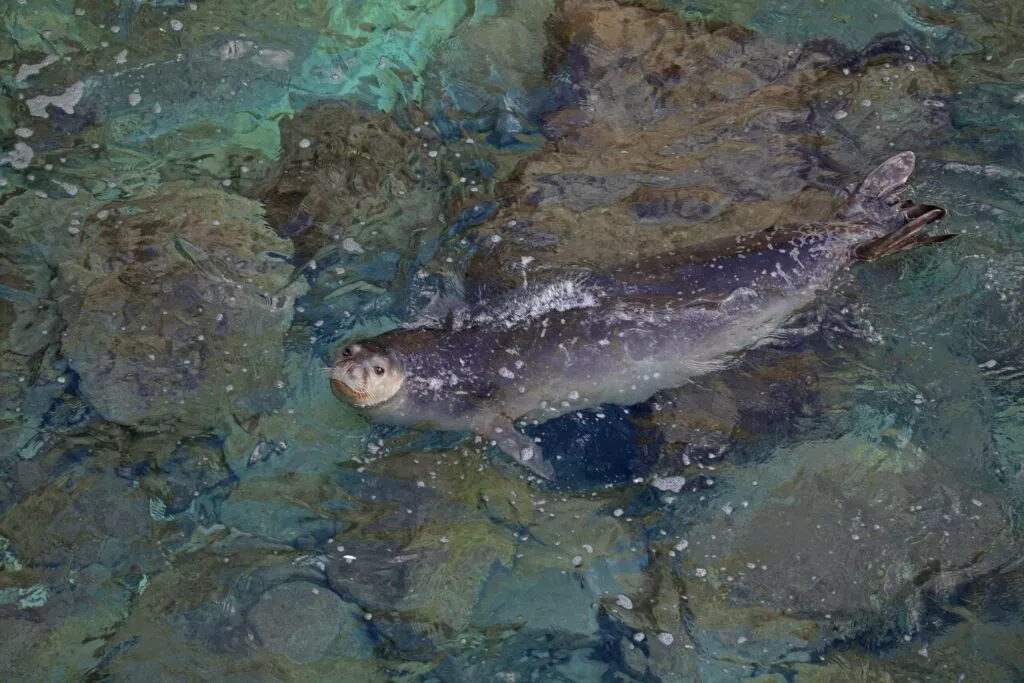The Monachus Monachus is still an endagered Mediterranean seal. But that seems to be changing sooner rather than later, that of course in the slower nature pace, as Cypriot waters have seen a steady rise in numbers year after year, with environmental service measures paying off, protecting seal habitat sea caves from human activity.
From around 7-10 seals in 2010, numbers last year rose to 22, with positive signals. The seal ecosystem in Cyprus is mostly in protected Natura 2000 maritime regions, as well as off the British Bases in Limassol, with other areas also being currently added following ministerial directives. Last years, seals were spotted for the first time at the Anassa hotel beach, both for resting as well as caring for newborns.
A detailed outlook of the Mediterranean seal, its life and habits, were recenly presented in Peyia, an event entitled ‘Meditteranean Seal-An Iconic Species-Past, Present and Future’, co-organised by the Ministry of Agriculture and the Environment.
The Cape Greco coastal caves are rarely preferred by seals due to increased human activity, with authorities expected to take additional measures. The Ayia Napa sea caves however are a popular haunt for the Monachus, both for reproduction and as a resting area. Scientists have recorded up to six seals at a time using the caves.
From Governor’s Beach right through to the recycling plant area in the west, seals have been spotted resting in the regional cave, along with two small beaches in the area.
One of the most important shelters is a 55 meter deep cave at Ayios Yeorgios Alamanos, an ideal refuge both for reproduction and resting, with many seals travelling as far away as 150 kilometers.
Monachus Monachus possibly took its name due to the thick layer of skin under its neck which resembles a Catholic monks religious hood. According to earlier beliefs, the name emerged from the monastic nature of the species, which scientists confirm is simply not true, as these seals are herd creatures.
The Monachus Meditteranean seal is the rarest of 33 species across the planet and the only one belonging to the genus Monachus. Sadly it is the number one endangered mammal in Europe, with just 700 left, half of them living and reproducing in Greece and a further 100 off the southern coast of Turkey.
Its systematic monitoring and protection is nothing short of crucial for the survival and rejuvenation of the species which can dive down to 200 meters. In Cyprus they reproduce in September right through to December.






